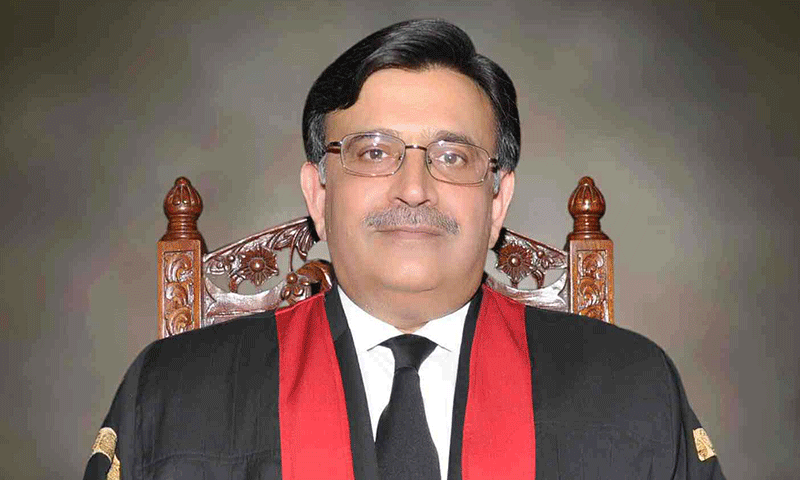Islamabad (Web Desk): The Supreme Court (SC) on Tuesday reserved the verdict on Pakisyan Tehreek-e-Insaf (PTI) Chairman and former premier Imran Khan's petition challenging the National Accountability (Amendment) Act, 2022.
A three-member bench headed by Chief Justice of Pakistan (CJP) Umar Ata Bandial, and comprising Justice Ijazul Ahsan and Justice Syed Mansoor Ali Shah wrapped up the hearing on plea today.
In his remarks, CJP) Umar Ata Bandial said that a "short and sweet order" would be issued soon.
PTI lawyer Khawaja Harris, government lawyers and other parties submitted their arguments in the case.
During the hearing, the CJP observed that amendments to Section 23 of the NAB law were introduced in May and then again in June while the record of cases withdrawn as of May 2023 has also been received.
He said that the NAB references withdrawn are indicative of the direction the law has taken.
Imran Khan's counsel Khawaja Haris apprised the court that after the amendments NAB holds no jurisdiction over the cases it has withdrawn, nor does it have the legal authority to forward these cases to any other forum.
Justice Mansoor Ali Shah observed that there is no need for a law to refer cases to other forums. The references which have already been filed would have to be taken up by one forum or other to reach resolution, he said, adding that the court would certainly inquire about "authority" not being granted to refer cases.
He said that the reason given for submitting this petition before the top court was stated to be accountability. "Why then was a serving army officer excluded", Justice Shah inquired.
"Regarding the Asfandyar Wali case, the court was informed that the Army Act is available to deal with cases pertaining to military officers,Justice Mansoor observed," adding that in this vein, the Civil Servants Act is present for the beauracracy and the Election Act is there for parliamentarians.
At this, Khawaja Haris said that the petition has not challenged clause 5(m) of the existing NAB law, which grants exemption to serving army officers.
In response to another question, the PTI lawyer said that the Civil Servants Act provides only for departmental action in cases pertaining to corruption not criminal punishments.
CJP Bandial inquired that if the Supreme Judicial Council (SJC) removes a judge from his post as per Article 209 over concerns relating graft, then who will do the recovery. "We are not looking at the petitioner's conduct. We are only concerned with whether the legislation violates fundamental rights or public interest," the CJP remarked.
During the proceedings, the the additional attorney general informed the top court that the attorney general of Pakistan (AGP) will submit his reply.
Later, the court reserved its verdict and adjourned the hearing, with the CJP Bandial saying that the bench would announce the date for the detailed verdict and issue a short and sweet order soon.
In June 2022, PTI Chairman and former premier Imran Khan had moved the SC against the recent amendments to National Accountability Ordinance (NAO) by the then Pakistan Democratic Movement (PDM)-led coalition government.
The NAB (Second Amendment) Bill 2021 states that NAB's deputy chairman, to be appointed by the federal government, would become the acting chairman of the bureau following the completion of the tenure of the chairman.
The bill has also reduced the four-year term of the NAB chairman and the bureau's prosecutor general to three years. After approval of the law, NAB will not be able to act on federal, provincial or local tax matters. Moreover, the regulatory bodies functioning in the country have also been placed out of NAB's domain.
It says that "all pending inquiries, investigations, trials or proceedings under this ordinance, relating to persons or transactions, shall stand transferred to the concerned authorities, departments and courts under the respective laws."
It has also set a three-year term for the judges of the accountability courts. It will also make it binding upon the courts to decide a case within one year. Under the proposed law, it has been made binding upon NAB to ensure the availability of evidence against an accused prior to his or her arrest.
According to one of the key amendments, the act "shall be deemed to have taken effect on and from the commencement of the National Accountability Ordinance 1999".


